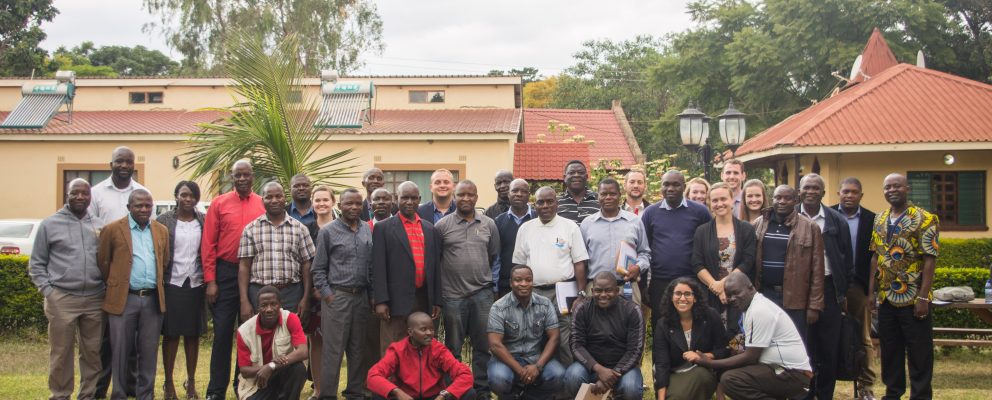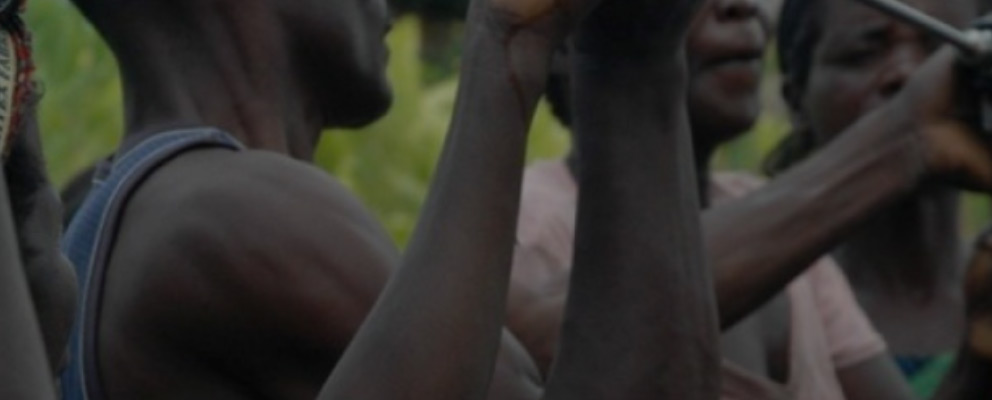
WASH Catalysts: Fostering Ingenuity Within Confines
Looking for an opportunity to work alongside young leaders like Christina in Sub-Saharan Africa? Apply now for an EWB Fellowship.
WASH Catalysts’ held a final workshop on May 30th and 31st to close its Tingathe program, drawing 30 participants from District Water Development Offices (DWDOs) and NGOs across Malawi to its capital, Lilongwe. The program first launched in 2014 and initially included only a handful of districts, but by May 2017, it had expanded to include half the districts in the country. It was created to help DWDOs fulfill their mandates of providing water service delivery support to their districts within their existing resource constraints. Under current budget allocations of about 600 USD per month, after paying office rent, utilities and supplies, there is little, if any, money left over for DWDOs to carry out water point maintenance.
Through the Tingathe program, WASH Catalysts aimed to empower DWDOs to come up with creative ways to stretch restricted funds. The program consisted of providing DWDOs with a three-month embedded consultancy to develop and pilot an innovative approach to improving service delivery, and a continuous knowledge sharing platform to learn from each other through regular workshops and learning visits. “Tingathe”, translated from the local language of Chichewa, means “we can.” ““We can” use innovative approaches despite our limited budget” was truly the spirit among the participants. Hands were flying as attendees passionately described their experiences implementing innovative strategies in their respective districts, and heads were nodding ardently by empathetic listeners.
Perhaps a true testament to the purpose of the peer-to-peer learning platform was the work done by Chitipa District. At the workshop, the Chitipa DWDO ran a session about their recent creative approach to improve water service delivery, but it didn’t focus on their original Tingathe innovation. Rather, the presentation was about a concept called “Borehole Banking” which the Chitipa DWDO first learnt of from Chikwawa District at a Tingathe workshop in July 2015. With Borehole Banking, communities raise funds from all borehole users once. Every month, these funds are lent out to community members and repaid the following month with interest, allowing communities to save and grow borehole maintenance funds. Using their improved relationships with community structures from their original Tingathe idea and their newfound inspiration from Chikwawa District, Chitipa implemented Borehole Banking, eventually reaching 50 villages and 210 boreholes.
Because WASH Catalysts always urges NGOs to think about the sustainability of their work in a post-project context, many participants wondered about the future of the peer-to-peer learning platform in the absence of WASH Catalysts. In response, DWDOs have independently created a forum to meet and discuss common challenges, and to present a unified, district-level voice to decision makers in government structures. The idea was met very well by DWDOs and NGOs alike.
Before parting, Program Director Sydney Byrns concluded by saying “We may be leaving as a program but we can still stay in touch. At EWB we really want to see you succeed and I think you’ll do that without us here.” Goodbyes were exchanged and embraces were warmly given and received. The attendees parted hopeful, yet realistic of their remaining work ahead. One of the Tingathe program’s largest accomplishments was not the number of boreholes it helped fix or communities it reached, but the sharing environment and forum it helped foster. The enthusiasm and leadership of the gathered group was a positive and optimistic sign of a brighter future for Malawi’s water sector.
Christina Radyo is an EWB Junior Fellow with WASH Catalysts, a Malawi based EWB Venture that aims to shift the rural water and sanitation sector away from a series of projectized approaches to a system that is institutionally sustainable.
